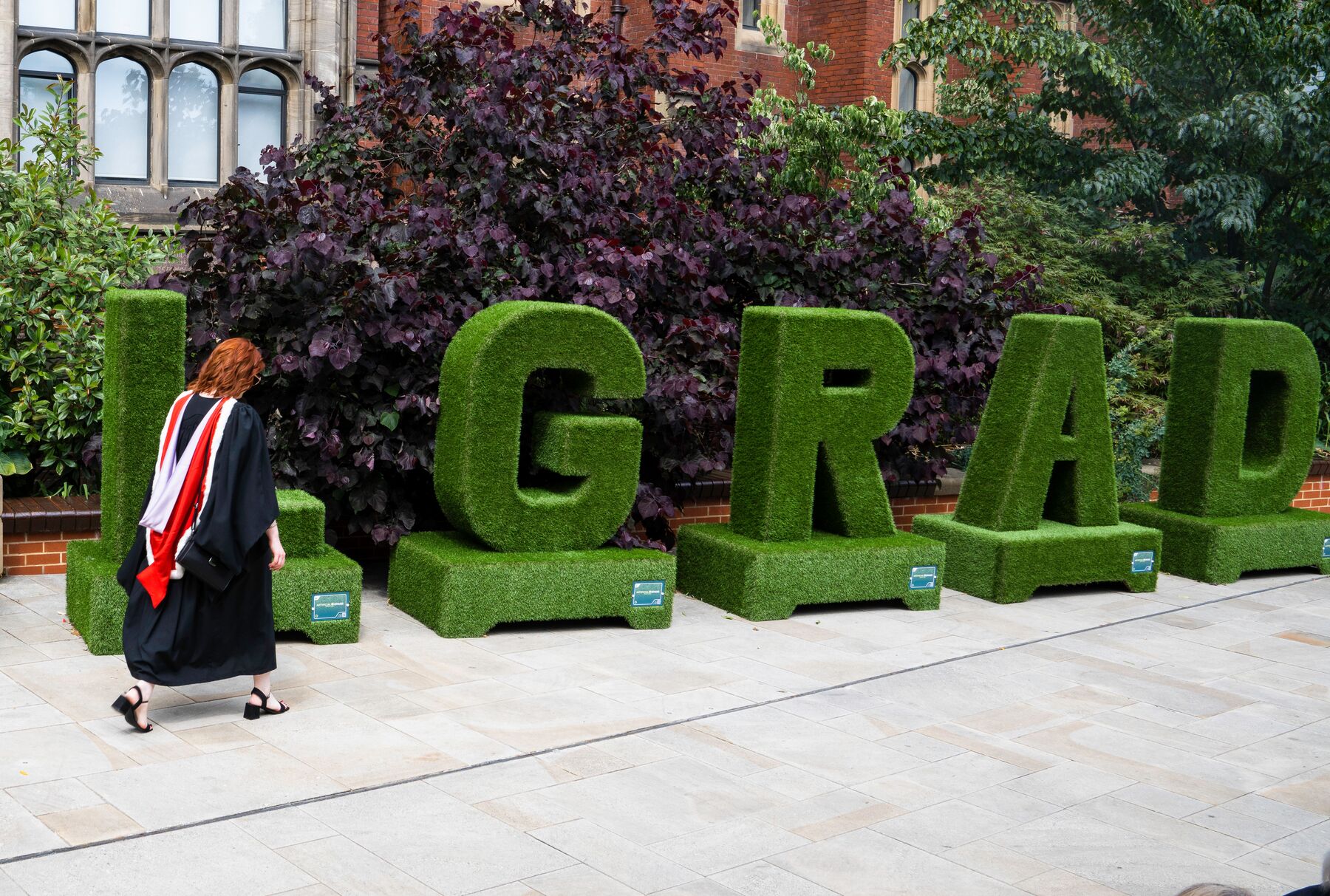Maria Kyriazi
BSc Biomedical Genetics and MRes in Ageing and Health
DPhil Student, University of Oxford
Newcastle University was the only university in the UK offering a course on Biomedical Genetics, delving into the complexity of the human genome and linking this knowledge, very uniquely, to human disease. The course itself was “one of its kind” and the more we proceeded in our studies, the more interesting it became. Having that in mind, and considering the excellent teaching received, the numerous opportunities to get further experience in academic and/or industrial labs, as well as the great academic support from our tutors and all the staff, I decided to extend my studies at Newcastle University by undertaking a Masters by Research (MRes) course.
What did you love about Newcastle University?
The friendly environment and the great support were definitely something to love about Newcastle University (and something I really miss). Besides that, Newcastle University is one of the very few Universities truly focusing on the student and providing exceptional support via student services regarding housing, finances, Visas, CVs, and other matters.

What did you enjoy most (or least!) about your course?
What I thoroughly enjoyed in my course was the learning material and in-depth knowledge that was provided throughout and was put together by our tutors to provide us with brilliant academic teaching. The COVID-19 pandemic found me in the middle of my bachelor’s studies, during which practical laboratory courses were an essential part of our teaching. Due to the measurements at the time, it was not feasible to conduct many of the practical sessions scheduled in person. However, our lecturers made sure that we got the most out of the course, regardless of the situation, and created online technical support, and appropriate platforms. Besides that, the course itself was a great combination of practical and theoretical knowledge.
Tell us a little bit about career journey. How did you get into what you do now?
During the final year of my bachelor’s studies, I decided to look for potential laboratory internships to expand my expertise and be better prepared for my coming Masters project. During that time, Newcastle University was advertising some research summer programmes in Oxford. In one of those programmes, the project that I am currently working on for my PhD was included. I was fascinated by the nature of this work and wanted to learn more about the topic. Hence, I applied. I spend the summer after graduation at the University of Oxford, exploring the ageing field by investigating two major hallmarks of ageing. The exceptional collaboration with the team in Oxford, and the later collaboration between Newcastle University and the University of Oxford, were only some of the reasons I decided to select this future career path. After my summer project in 2022, we collaborated with the team in Oxford as part of my master’s project in 2023 - which I conducted in Oxford - and bridged a wonderful partnership between the two institutes. The very promising results of this work and the amazing support, teamwork and supervision received throughout this time, were the reasons I decided to apply for a PhD programme at Oxford and continue this work. I am currently in the second year of my PhD project, and up until now, we have continued working closely with Newcastle University and continue this beautiful collaboration, with many more ageing researchers from the University.
What do you enjoy most about your current job?
My current work as a PhD scientist is exclusively research-based. Having the chance to explore and try to understand the unknowns of biology amazes me. My project focuses on osteoarthritis, a joint disease with no effective therapy, affecting thousands of older adults annually. Hence, knowing that with the results of my work, I might be able to contribute to the discovery of a new drug that will help in treating patients, gives further meaning to my work and motivates me to keep going.
What is the biggest challenge you have faced in your career journey?
Dealing with failure was one of the biggest challenges I faced throughout my career journey. Academia is a place where failure and rejection are a big part of the process. Therefore, it eventually forces you to keep going and not give up.
How did your course and experiences at Newcastle University prepare you for your current role?
Newcastle University offered a plethora of opportunities to gain further experience in the field and build up a strong network. Since very early in the course we were offered advice on how to prepare our CV and apply for extracurricular experiences either nationally or internationally, within academic institutions or industrial settings. This reinforced to the students the idea of “thinking outside of the box” and going beyond, by teaching us how to reach out and create opportunities even when they are not there.
What other things did you do at University which helped you to get where you are now?
Meeting regularly with my tutors or lecturers and discussing the science itself or potential future career plans helped me see the potential career options and strengthen my ability to build collaborative relationships with junior/senior researchers. The societies were also a big part of building up my collaboration and communication skills.
What one piece of advice do you wish someone had given you when you first started?
Try as many things as possible and get involved with opportunities you find interesting, or you would like to try! Before I began my studies at Newcastle University, I was planning to apply for graduate Medicine programmes immediately after graduation. However, during my bachelor studies, I fell in love with research and was truly mesmerised by the science field. Hence, I decided to remain in science, continue with a masters, and now a doctorate, aiming to help people’s lives - in the background.
What support do you wish you had when you first started? And are there any resources that you would recommend to people?
I would say, talk to as many people as possible. Ask questions and reach out when you want to learn more about something, or when you are not sure about something. Being curious is a big part of learning. I would highly recommend using all the services that the University has to offer and meeting students that have already started their studies or are at later stages.
